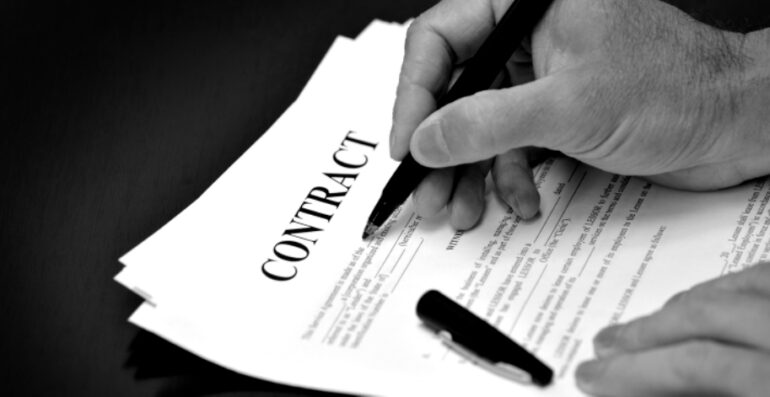When the insurance company calls with what seems like a “reasonable” settlement a couple of weeks after an accident, it can feel like a lifeline. The adjuster might sound sympathetic and you might need the money now. But here’s the thing: Accepting a quick settlement is almost always a mistake that will cost you significantly in the long run.
Insurance companies don’t make early offers out of generosity – they make them because they know you don’t yet understand the full extent of your damages. They’re betting that your eagerness to resolve the situation will lead you to accept far less than your case is actually worth.
Let’s take a look at why you should avoid settling too quickly.
- Your Injuries May Be More Serious Than Initially Apparent
In the immediate aftermath of an accident, adrenaline and shock can mask the true extent of your injuries. What initially seems like minor soreness or a small cut might develop into something much more serious as days and weeks pass. Soft tissue injuries, in particular, often don’t show their full impact until well after the initial trauma.
Consider whiplash from a car accident. You might feel fine at the scene and even for the first few days afterward. But within a week or two, you could be dealing with severe neck pain, headaches, and mobility issues that require months of physical therapy. If you’ve already settled your case based on those first few relatively pain-free days, you’ve lost your opportunity to seek compensation for the ongoing treatment you’ll need.
Brain injuries are another example where symptoms can be delayed or initially subtle. A concussion might not present obvious symptoms right away, but over time, you might notice memory problems, difficulty concentrating, mood changes, persistent headaches, etc. These issues can affect your ability to work and enjoy life, but if you’ve already settled, you can’t go back and ask for more money to cover these damages.
- You Don’t Know the Full Financial Impact Yet
Beyond the immediate medical costs, personal injuries often have financial consequences that aren’t apparent right away. You might need ongoing medical treatment, physical therapy, or even surgery months or years down the road. If your injury affects your ability to work, you could be looking at reduced earnings for an extended period.
The insurance company’s early settlement offer is typically based only on the medical bills and lost wages you’ve already incurred, plus a relatively small amount for pain and suffering. They’re not accounting for future medical expenses or the full impact the injury will have on your quality of life.
Think about it from their perspective: They’d much rather pay you $10,000 now than risk having to pay $50,000 or more later when the full extent of your damages becomes clear. That’s why they make these early offers.
- Insurance Companies Have Significant Advantages
Insurance adjusters are professionals who handle claims every day. They know exactly what tactics to use to encourage quick settlements, and they’re very good at making their offers sound reasonable and fair. They might tell you this is a “standard” settlement for your type of injury, or that the offer is only available for a limited time.
Remember, these adjusters work for the insurance company, not for you. Their job is to resolve claims as quickly and cheaply as possible. Every dollar they save on your settlement is money that stays in their company’s pocket. They have access to actuarial data, medical databases, and legal precedents that help them understand what cases are actually worth, while you’re likely dealing with your first serious injury claim.
They also know that injured people are often in vulnerable positions financially and emotionally. Medical bills are piling up, you might be out of work, and you’re dealing with pain and uncertainty about your recovery. They’re counting on these pressures to make you eager to accept whatever they’re offering just to have some money coming in.
- The Settlement Is Final
In personal injury matters taking a quick settlement can mean settling for less than you deserve and potentially missing out on full compensation. Consulting with experienced trial attorneys such as Dolt, Thompson, Shepherd, Conway & Stanton, PSC can help ensure you understand your options and negotiate from a position of strength.
Perhaps the most important reason to avoid quick settlements is that once you sign the agreement and cash the check, that’s it. You’re giving up your right to seek additional compensation, even if your injuries turn out to be much worse than initially thought.
The settlement agreement will include language releasing the responsible party from any future claims related to the accident. This means that if you need surgery six months later, or if you develop complications that require extensive treatment, you can’t go back and ask for more money. You’re stuck with whatever you initially agreed to.
Using a Smart Approach
Instead of rushing into a settlement, take time to understand the full scope of your situation. Focus on getting proper medical treatment and following your doctor’s recommendations. Keep detailed records of all your expenses, medical appointments, and how the injury is affecting your daily life.
Consider consulting with a personal injury attorney before making any decisions about settlement offers. Most personal injury lawyers offer free consultations and work on a contingency fee basis, meaning you don’t pay unless they recover money for you. They can help you understand what your case is actually worth and whether an early offer is fair.
Your future well-being is worth more than the temporary relief of a quick settlement. Take the time to make sure you’re making the right decision for your long-term financial and physical recovery.






